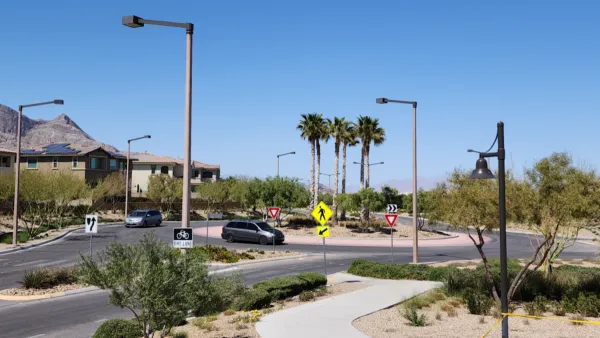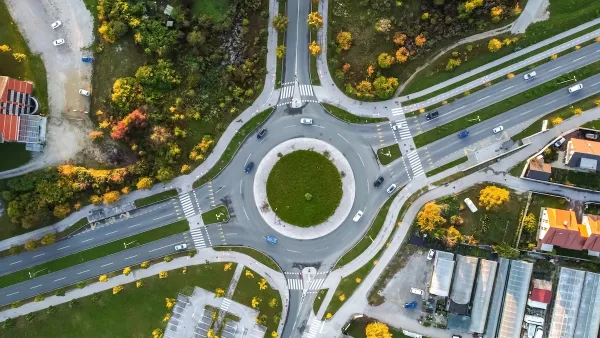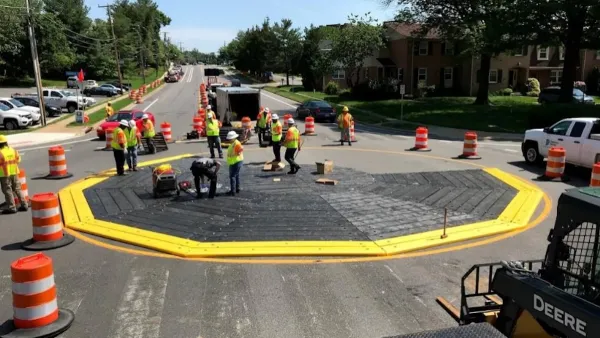They're safer, faster, require less fuel use and enhance public space. So why do Americans tend to reject proposals for roundabouts?
Americans tend to reject roundabouts for a number of reasons, including being unaccustomed to predicting other drivers' behaviors and a preference for traffic signals.
But Tom Vanderbilt argues that Americans need to get over their bias for roundabouts, and lays out out several reasons why they're far superior to regular binary intersections.
"There are few silver bullets when it comes to traffic, and roundabouts will not work everywhere. (Some intersections are already too busy to consider switching to the roundabout model.) Like anything, they can be poorly designed: You don't want them to look as if someone simply traced 'a circle around a coffee can' on a piece of paper, as one engineer has put it. Yes, there will perhaps have to be some minor educational outreach-one Indiana town is weighing spending $24,000 to do just that-but a larger question here is whether people who cannot manage to merge at low speed into a counter-clockwise circle and, yes, perhaps even change lanes in that circle, before finding the correct exit should actually be holding licenses that enable them to operate heavy machinery in the first place."
FULL STORY: Don't Be So Square

National Parks Layoffs Will Cause Communities to Lose Billions
Thousands of essential park workers were laid off this week, just before the busy spring break season.

Retro-silient?: America’s First “Eco-burb,” The Woodlands Turns 50
A master-planned community north of Houston offers lessons on green infrastructure and resilient design, but falls short of its founder’s lofty affordability and walkability goals.

Delivering for America Plan Will Downgrade Mail Service in at Least 49.5 Percent of Zip Codes
Republican and Democrat lawmakers criticize the plan for its disproportionate negative impact on rural communities.

Test News Post 1
This is a summary

Test News Headline 46
Test for the image on the front page.

Balancing Bombs and Butterflies: How the National Guard Protects a Rare Species
The National Guard at Fort Indiantown Gap uses GIS technology and land management strategies to balance military training with conservation efforts, ensuring the survival of the rare eastern regal fritillary butterfly.
Urban Design for Planners 1: Software Tools
This six-course series explores essential urban design concepts using open source software and equips planners with the tools they need to participate fully in the urban design process.
Planning for Universal Design
Learn the tools for implementing Universal Design in planning regulations.
EMC Planning Group, Inc.
Planetizen
Planetizen
Mpact (formerly Rail~Volution)
Great Falls Development Authority, Inc.
HUDs Office of Policy Development and Research
NYU Wagner Graduate School of Public Service





























